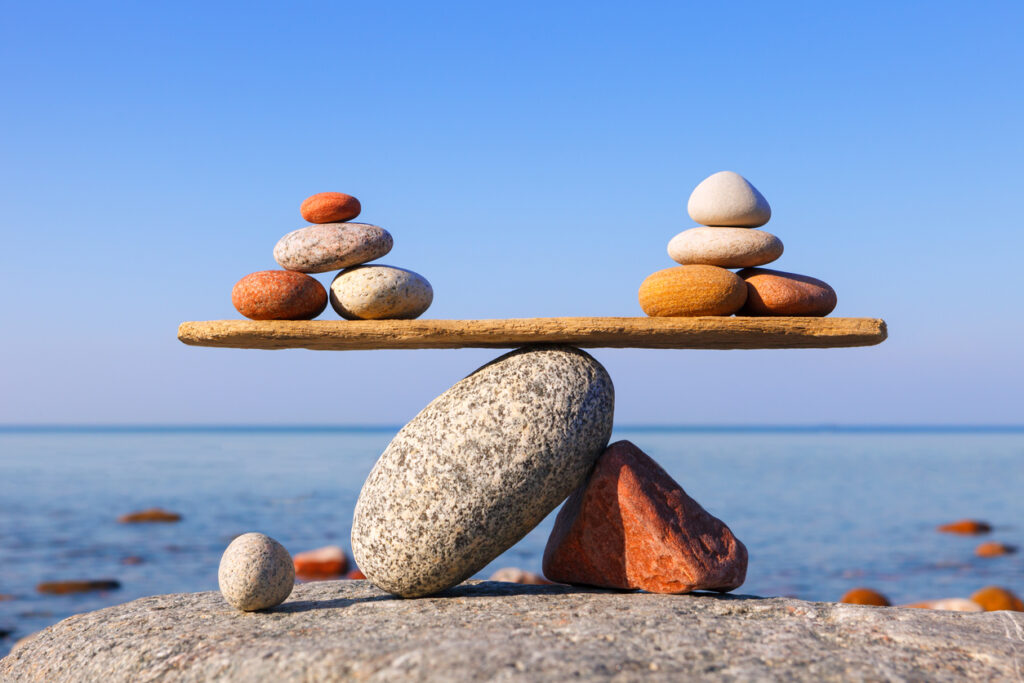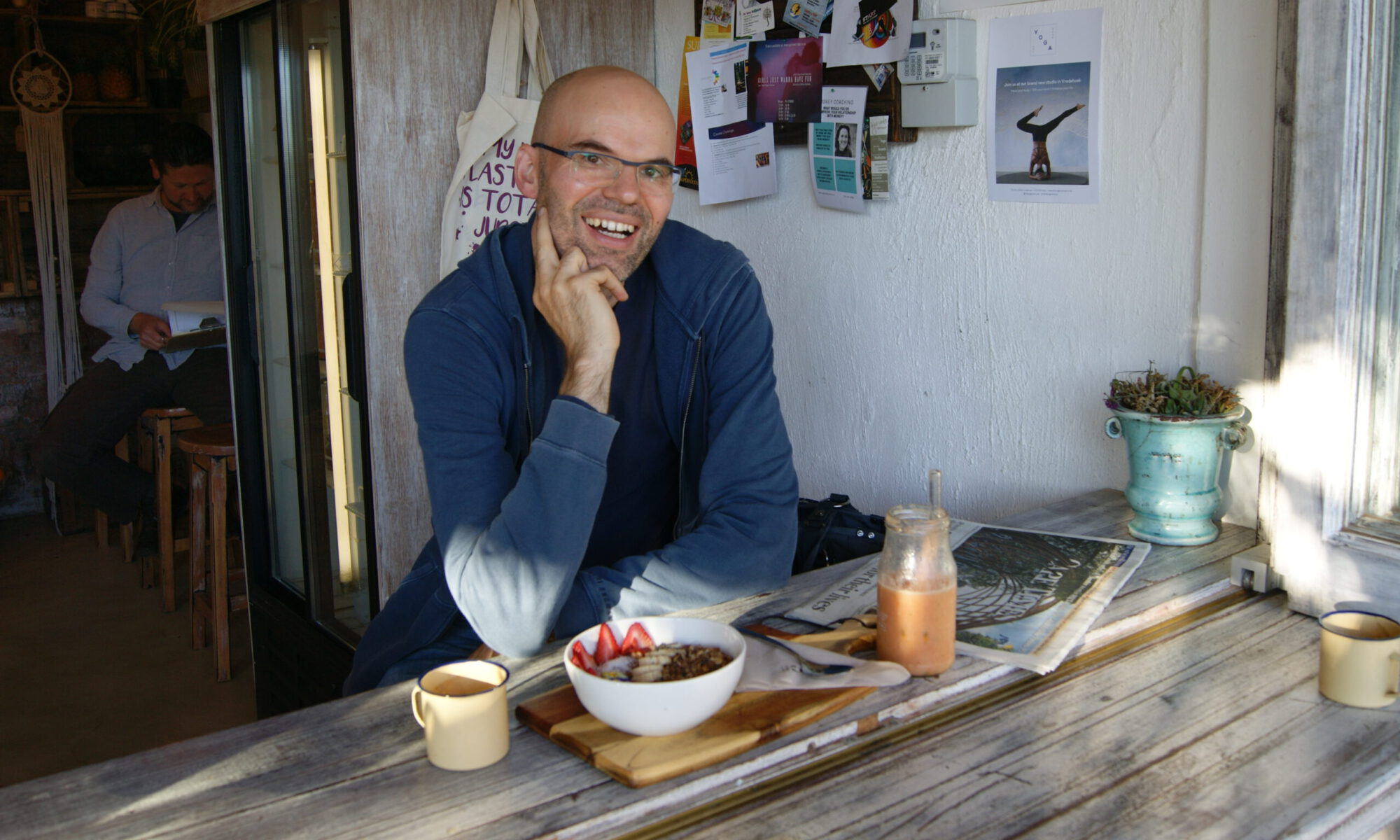
In addition to my two blog posts about values in December/January, I would like to go into more detail about balance today. A value that is important to me personally – both on a global level (keyword „resource consumption“) – as well as on an individual level (keyword „life balance“) that deserves more attention.
Since I have already defined balance in one of these posts, I will not repeat it here, but refer to the corresponding value example blog post.
First, I’d like to tell you today where I first experienced and felt balance, then I’ll go into its meaning and conclude this blog post with thoughts on how to personally implement and communicate it to the next generation. The focus in this post is on the global perspective. Here goes😉
1. Where did I first personally experience/feel balance?
In my childhood and youth in the Scouts.
Scouting means everything but everyday life: here we sing, play, do handicrafts, cook… a variety of activities and topics, just try and do, everyone as they can.
And in the process grow, as a group, as an individual, above all mutually, because you learn from each other.
Girls & boys, fun & games, indoors & outdoors, give & take.
I didn’t know what balance meant at the time, it just felt good & right – „beautiful“ in my words at the time.
As a child I always wondered about the Swedish King Carl Gustav, a self-confessed Boy Scout, why as an adult he identifies with the Boy Scouts – in my words Scouts – is something exclusive to children in my world of thought at the time and when you grow up you stop doing that because then it’s other people’s turn….
The big picture, the scope – summarized in the Scout Promise, among other things.
Adherence to spiritual principles (with me at Christian principles, thus the honor gg. God, since I was member with the federation of Christian Pathfinders and Pathfinders, briefly VCP);
Honor towards one’s fellow human beings: Reverence for the dignity of man, advocacy of peace, protection of the environment, etc.
Honor towards oneself: Responsible for my own development, unfolding my personality, etc.
I was not aware of this at the time, I just felt that it felt good and was fun.
2. Where are our challenges?
I miss this intact, because tangibly coherent world of experienceable and lived values in everyday life. On the one hand, this is not surprising, one could argue, since in our pluralistic, liberal society, value plurality/neutrality should prevail. (Whereby the values conveyed to me in the Scouts, such as reverence for human dignity, are congruent with human rights and duties, which are supposed to form the basis of our global community).
On the other hand, the discrepancy between communicated and lived values strikes me in many places.
In politics (not even the European Parliament seems to be immune to corruption),
in numerous organizations and companies (in which employee-, company- and owner-orientation are not balanced, contrary to press releases to the contrary), but also
in private life (where, contrary to mutual promises, only lip service is paid to equality in relationships).
The world in 2023 is not in balance.
We live in a world where wealth is very unequally distributed (the richest percent of the population owns almost half of the wealth [i]), where there is a lot of violence,[ii] and nature is very polluted and exploited[iii] and only a minority of humanity lives in safety from physical and psychological violence, in an intact nature and financially secure existence.
3. To help build a world in balance!
Just because, at 46, I have in all likelihood already lived half my life and am not doing everything right in terms of sustainable living, I have not lost faith in a better world – for me, a world of justice and balance.
The Scout Promise may appeal to my conscience, but the methods I have learned are what help me – and can help us – to build a world of justice and balance. Because we have less of a knowledge problem than an implementation problem.
Meaningful methods that help us – and that I would like to teach my son – are for example
Learning by doing: No master has ever fallen from the sky; the best way to learn something new is to try it out! I want to instill in my son the desire to be a lifelong learner and encourage his curiosity, taking away his fear of perfectionism in the process… and set myself on the path to living more sustainably, aware that it is a continuous process of improvement („If many small people in many small places take many small steps, they will change the face of the world.“[iv])
Look at the boy – Consideration of age and ability to avoid being under/over-demanded don’t get stressed, I always remind myself of this when explaining/showing/giving something to my son.
Living close to nature – On trips and camps a conscious renunciation of comfort and convenience is practiced through simplicity and frugality along the lines of „The world has enough for everyone’s needs, but not enough for everyone’s greed“ Mahatma Gandhi. Teaching and modeling this to my son is anything but easy, especially since we live in the city. The easiest way was to visit a scout camp with him for two days, without a warm shower and with the items that fit into his backpack.
I myself am guided by the 17 Sustainable Development Goals of the United Nations (the so-called SDGs), as their achievement contributes to my ideal of a world in justice (for me, synonymous with universal respect for human rights/duties) and balance.
Because I firmly believe that if everyone focuses on three SDGs (according to their individual strengths), we can succeed in this decade to make a significant contribution to a world in „justice and balance“ and still reach the 1.5degree target.
In the next blog post I would like to talk about the term „responsibility“, let me surprise you.
[i] Simple illustration for this (in German or French language): https://www.watson.ch/wissen/international/363235420-so-wuerde-die-welt-mit-100-einwohnern-aussehen
[ii] Impressive TED Talk about this: https://www.ted.com/talks/gary_haugen_the_hidden_reason_for_poverty_the_world_needs_to_address_now
[iii] For example see: https://www.unicef.org/press-releases/over-consumption-worlds-richest-countries-destroying-childrens-environments-globally
[iv] https://www.globalmarshallplan.org/wenn-viele-kleine-leute-an-vielen-kleinen-orten-viele-kleine-schritte-tun-dann-werden-sie-das-gesicht-der-welt-veraendern/
